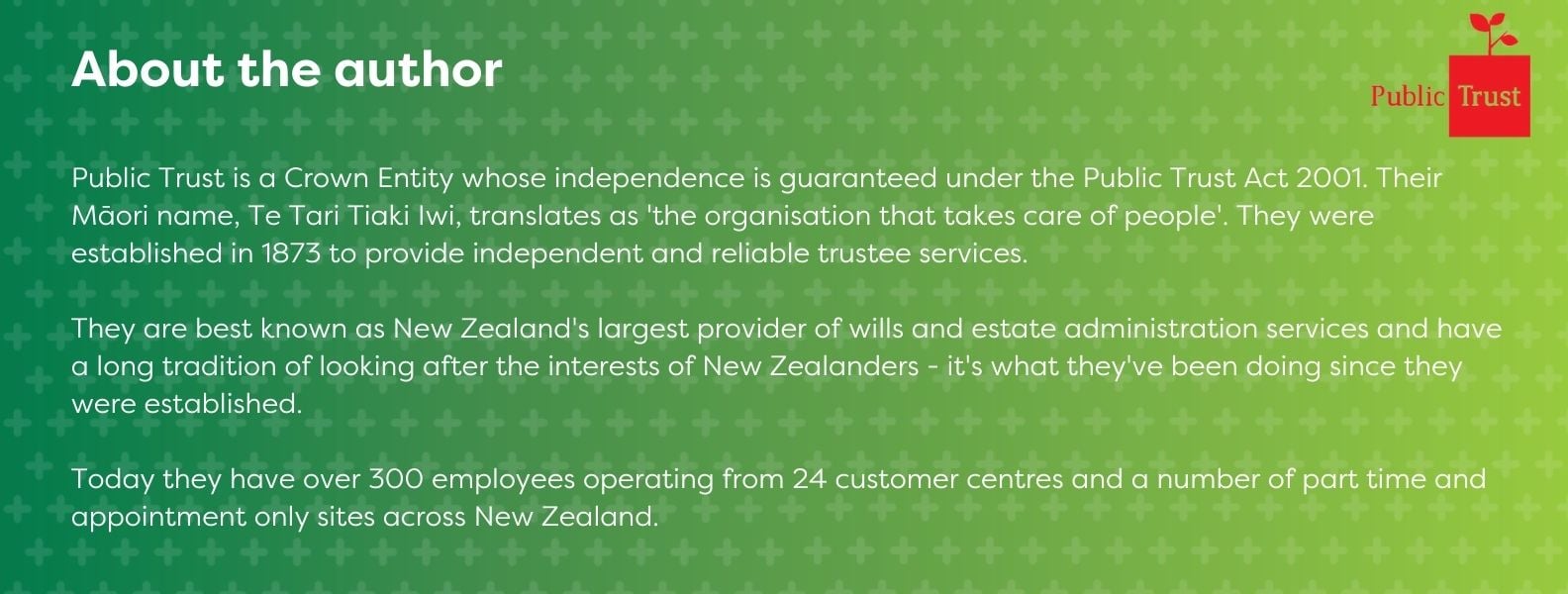When you first begin working on your will, EPA or estate, you may find some of the terms are unfamiliar. Find out what these terms mean below.
| Terms | Definition |
| Assets | Assets are items of economic value that you own. |
| Beneficiary | Any person, organisation, trust or charity who will benefit under the will. |
| Bequest or gift | A bequest is a gift that you have made to a person or organisation in your will. This is usually a specific item or items such as jewellery, a vehicle or an amount of money for education. (A bequest of a home or land is sometimes called a 'devise'.) |
| Debts | Debts are amounts of money that you owe to others. |
| Disbursements | Fees from various organisations that we pay on behalf of the estate (such as bank fees, valuations, lawnmowing etc.). |
| Distribution | A payment made, or an asset transferred. |
| EPA (or EPOA) | An Enduring Power of Attorney is a legal document in which you appoint a person or organisation to make decisions on your behalf if your circumstances change in the future and you are no longer in a position to look after yourself or your property. Learn more about EPAs and how you can get one. |
| Estate | Everything a person owns at the time of their death. |
| Executor | The executor and trustee is the person or organisation responsible for carrying out the wishes in the will and paying the beneficiaries. |
| Grant of administration (of probate) | The court's approval giving the executor the right to deal with the estate. |
| Guardian (or testamentary guardian) | Someone who will look after a child's welfare when a parent dies before the child is 18. The guardian helps to make important decisions about the child's development and welfare. A guardian doesn't automatically become the day-to-day caregiver of the child. |
| Intestate | You are said to be intestate if you die without a will. |
| Personal care and welfare attorney | The person you have appointed in your personal care and welfare EPA to make decisions about health or personal matters affecting you if you can't look after yourself. See also EPA above. |
| Plan of administration | The plan we agree with the beneficiaries setting out how the estate will be managed and settled - it details what will be done, when, and who will do it. |
| Probate | Probate means that a person or organisation has been given permission to administer your estate by the court. Administration may include collecting and valuing assets, paying debts and distributing valuables to your beneficiaries. |
| Property attorney | The person you have appointed in your property EPA to manage your assets if you can't look after them yourself. See also EPA above. |
| Statement of account | The account of how the estate was settled. It shows all the assets, what was done with one and what each beneficiary received. |
| Transmission | This is the process by which an executor takes ownership of a property. |
| Will | A will is a legal document that is unique to you and can help make sure your assets, the people and things you love are taken care of after you’re gone. It also specifies who is responsible for carrying out your final wishes; this person is known as the executor of your will. More about Wills. |




